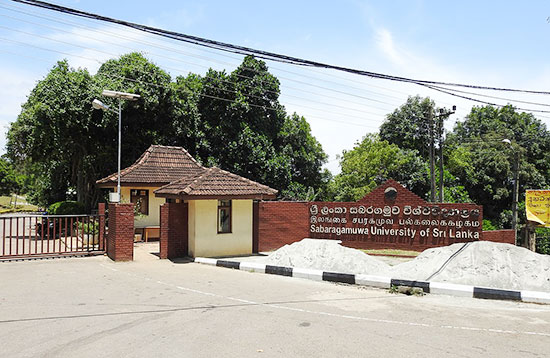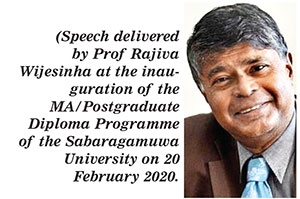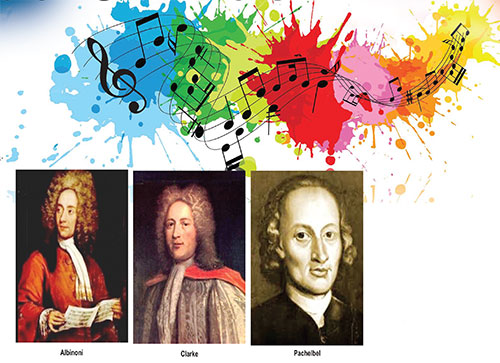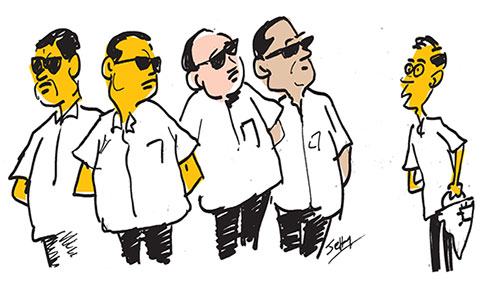Midweek Review
Crouching Failure: Disintegrating loser

By Jolly Somasundram
“O wad some Pow’r the giftie gie us.To sie oursels as ithers see us.”
(“O what power the fairy can give us, to see ourselves as others see us.”)
Robert Burns
What benefits a six-time bankrupt, to holler “I have won, I have won”, after losing the bet? A fire without a flame?
Only after the tide goes out, does realisation dawn that one had been swimming naked. The ebb has occurred for the 45th President though he had not gained a trickle of enlightenment. The result? Never in history has a head of state cut such a pathetically sore figure, cravenly and shamelessly whimpering conspiracy theories, to account for his loss of a second coming. The White House has become a theatre of the absurd. It is sadness when the US, an economically and militarily dominant state- the oldest functioning democracy and the most powerful in the world- is headed by a schmuck. Even when the narcissistic Roman Emperor Nero had to give way, he did so with panache, saying, qualis actifer pereo (what an artist but still I die!). Dignity is wanting in the 45th. The 45th, a two of clubs became an ace of spades, which unrenewed, reverted him to his familiar slot. A somebody has now become only a body. His behaviour and actions have debased a respected institution – the Presidency of the US. And departing, he does this on the White House door-step!
All the world’s a stage, but for this impeached and now, booted out player, the stage was a platform for extraction and avoiding taxes- like a Mafia Don-to benefit family and himself. For him, too much is never enough. He is ending his blood splattered four-year term with a killing spree, making human sacrifices of condemned prisoners, the first, few days ago and the second, two days later. Ten executions authorised by him from July this year, preceded these two. Three more have joined this macabre death assembly line, to be done-in before the 45th relinquishes office on 21st January 2021. These executions were the first, after 130 years, which took place during a lame-duck presidency. (Earlier this year, the 45th tasted blood in another context, ordering a Drone killing of Soleimanyi, the Deputy head of Iran). The 45th, in a widely telecast event, pardoned a Turkey – a lame duck pardoning a wholesome fowl – a few days before the executions of these two, to show his Christmassy compassion, an emotion unextended to the executed humans! For them it was a season of ill-will. In Russia, there was a kingly executioner named Vlad the Impaler. This one in the US, could be called, 45th the lethal injector. Midas turned everything he touched to gold, the 45th turned everyone he met into corpses! The 45ths successor- Joe Biden- has a firm anti-capital punishment position. The 45th’s warp speed executions were to ensure that the remaining three – two men and a woman-will not benefit from Joe Biden’s compassion. He wishes to leave the presidency in a blaze of gory! The 45th earned his spurs from medical certificates, now gets spurns for his execution spree. The Soleimanyi execution could be a war crime. Pinochet- the Chilean ex-President- was indicted after he left office. Ribbentrop, was executed as a war criminal for being Foreign Minister in Hitler’s cabinet. Tony Blair is another war criminal awaiting justice. The same indictment awaits the 45th.
The 45th confronted the burgeoning Covid-19 pandemic with indifference. He did not take it seriously. He called it a hoax, fake news, a Chinese conspiracy, voodoo magic, inject detergent, prescribed unsuitable, medicine – hydroxychloroquine- like a quack doctor, withdrew from the WHO, the international organisation fighting the epidemic, discouraged simple care measures like wearing masks and social distancing. Instead, he became a super-spreader. The result was disastrous. Within eight months 300,000 have died, more than the American casualties of WW II. When the pandemic peters out in three to four years it is expected that 600,000 Americans would be dead. The 45th could appropriately be called the Pol Pot of the West. His indifference could rightly be called a crime against humanity, a term minted at the Nuremburg War Tribunal.
Elections are the life-blood of a democracy, not a voice degradable activity, decided by vote not voice. Judgement day is when results are declared and the mandate of the people withdrawn from the old or conferred on the new.
The date for the election of a US president is specified in the US Constitution, the Tuesday following the first Monday of November, every leap year. In the US, elections are a devolved subject, conducted according to the state’s constitution and adjudicated by the state’s Supreme Court. A president of the US has no say in their conduct. Perhaps, having a premonition of his dire electoral prospects, irrespective of his lack of status to intervene, he used his position as President to do so. His bizarre interventions were in three phases, first, the pre-election phase, the second, the concurrent phase during the election, and the third, the post- election phase. In the pre- election phase, he declared the election to be the most corrupt in US history and wanted it postponed. He was playing a Banana Republican. His demand was laughed out of court as the postponement was unconstitutional. The next in his pre-election gaffes was to declare that since he had deep reservations about the conduct of the elections, he wished his opponent to concede and accept him as the legitimately elected president. He went better than the USSR, where the victor gained 99% of the votes cast, here, he got 100% since voting did not take place. Another gale of laughter ensued. This comic opera of the first phase continued to election day. The first phase was a failure with a small ‘f’. In the second phase, he regularly interfered with the count, claiming, on the basis of early returns, he had been elected, and declared himself as the second term president. This was ignored. The results were declared: he had lost badly, the opponent gaining a majority of 7 million votes and 320 votes in the electoral college, where only 270 would suffice. It was failure with a big ‘F’. Nonetheless, he refused to concede. He has become a pretender president.
The third phase was full of his post-election shenanigans. He tried every possibility to discredit the elections and cast doubts on their validity, calling them a steal, despite his own Director, overseeing the election, stating that they were the freest and cleanest in the history of the US. This officer was sacked the next day for his temerity. He then tried the law court route, every one of the 50 cases he got filed was rejected, one judge calling it “a Frankenstein stitch up.” The next recourse was the Supreme Court, which, after 30 minutes of deliberation, unanimously rejected it, stating the case had no merit. The 45th abused the Supreme Court for having “no wisdom and courage.” Running out of legal runway, the next was the preposterous claim that since he got the highest number of votes than any second candidate, he should be the one to be selected. More laughter! He then tried the time-tested strategy, of suborning politicians. No dice. The 45th was the failure who failed, even as a failure.
Joe Biden will take oaths as the President of the US at the stroke of twelve (midday) on 21st January 2021.
The 45th will have as his epitaph Nunquam considere: I will not concede
- News Advertiesment
See Kapruka’s top selling online shopping categories such as Toys, Grocery, Flowers, Birthday Cakes, Fruits, Chocolates, Clothing and Electronics. Also see Kapruka’s unique online services such as Money Remittence,News, Courier/Delivery, Food Delivery and over 700 top brands. Also get products from Amazon & Ebay via Kapruka Gloabal Shop into Sri Lanka.
Midweek Review
‘Professor of English Language Teaching’

It is a pleasure to be here today, when the University resumes postgraduate work in English and Education which we first embarked on over 20 years ago. The presence of a Professor on English Language Teaching from Kelaniya makes clear that the concept has now been mainstreamed, which is a cause for great satisfaction.
 Twenty years ago, this was not the case. Our initiative was looked at askance, as indeed was the initiative which Prof. Arjuna Aluwihare engaged in as UGC Chairman to make degrees in English more widely available. Those were the days in which the three established Departments of English in the University system, at Peradeniya and Kelaniya and Colombo, were unbelievably conservative. Their contempt for his efforts made him turn to Sri Jayewardenepura, which did not even have a Department of English then and only offered it as one amongst three subjects for a General Degree.
Twenty years ago, this was not the case. Our initiative was looked at askance, as indeed was the initiative which Prof. Arjuna Aluwihare engaged in as UGC Chairman to make degrees in English more widely available. Those were the days in which the three established Departments of English in the University system, at Peradeniya and Kelaniya and Colombo, were unbelievably conservative. Their contempt for his efforts made him turn to Sri Jayewardenepura, which did not even have a Department of English then and only offered it as one amongst three subjects for a General Degree.
Ironically, the most dogmatic defence of this exclusivity came from Colombo, where the pioneer in English teaching had been Prof. Chitra Wickramasuriya, whose expertise was, in fact, in English teaching. But her successor, when I tried to suggest reforms, told me proudly that their graduates could go on to do postgraduate degrees at Cambridge. I suppose that, for generations brought up on idolization of E. F. C. Ludowyke, that was the acme of intellectual achievement.
I should note that the sort of idealization of Ludowyke, the then academic establishment engaged in was unfair to a very broadminded man. It was the Kelaniya establishment that claimed that he ‘maintained high standards, but was rarefied and Eurocentric and had an inhibiting effect on creative writing’. This was quite preposterous coming from someone who removed all Sri Lankan and other post-colonial writing from an Advanced Level English syllabus. That syllabus, I should mention, began with Jacobean poetry about the cherry-cheeked charms of Englishwomen. And such a characterization of Ludowyke totally ignored his roots in Sri Lanka, his work in drama which helped Sarachchandra so much, and his writing including ‘Those Long Afternoons’, which I am delighted that a former Sabaragamuwa student, C K Jayanetti, hopes to resurrect.
I have gone at some length into the situation in the nineties because I notice that your syllabus includes in the very first semester study of ‘Paradigms in Sri Lankan English Education’. This is an excellent idea, something which we did not have in our long-ago syllabus. But that was perhaps understandable since there was little to study then except a history of increasing exclusivity, and a betrayal of the excuse for getting the additional funding those English Departments received. They claimed to be developing teachers of English for the nation; complete nonsense, since those who were knowledgeable about cherries ripening in a face were not likely to move to rural areas in Sri Lanka to teach English. It was left to the products of Aluwihare’s initiative to undertake that task.
Another absurdity of that period, which seems so far away now, was resistance to training for teaching within the university system. When I restarted English medium education in the state system in Sri Lanka, in 2001, and realized what an uphill struggle it was to find competent teachers, I wrote to all the universities asking that they introduce modules in teacher training. I met condign refusal from all except, I should note with continuing gratitude, from the University of Sri Jayewardenepura, where Paru Nagasunderam introduced it for the external degree. When I started that degree, I had taken a leaf out of Kelaniya’s book and, in addition to English Literature and English Language, taught as two separate subjects given the language development needs of students, made the third subject Classics. But in time I realized that was not at all useful. Thankfully, that left a hole which ELT filled admirably at the turn of the century.
The title of your keynote speaker today, Professor of English Language Teaching, is clear evidence of how far we have come from those distant days, and how thankful we should be that a new generation of practical academics such as her and Dinali Fernando at Kelaniya, Chitra Jayatilleke and Madhubhashini Ratnayake at USJP and the lively lot at the Postgraduate Institute of English at the Open University are now making the running. I hope Sabaragamuwa under its current team will once again take its former place at the forefront of innovation.
To get back to your curriculum, I have been asked to teach for the paper on Advanced Reading and Writing in English. I worried about this at first since it is a very long time since I have taught, and I feel the old energy and enthusiasm are rapidly fading. But having seen the care with which the syllabus has been designed, I thought I should try to revive my flagging capabilities.
However, I have suggested that the university prescribe a textbook for this course since I think it is essential, if the rounded reading prescribed is to be done, that students should have ready access to a range of material. One of the reasons I began while at the British Council an intensive programme of publications was that students did not read round their texts. If a novel was prescribed, they read that novel and nothing more. If particular poems were prescribed, they read those poems and nothing more. This was especially damaging in the latter case since the more one read of any poet the more one understood what he was expressing.
Though given the short notice I could not prepare anything, I remembered a series of school textbooks I had been asked to prepare about 15 years ago by International Book House for what were termed international schools offering the local syllabus in the English medium. Obviously, the appalling textbooks produced by the Ministry of Education in those days for the rather primitive English syllabus were unsuitable for students with more advanced English. So, I put together more sophisticated readers which proved popular. I was heartened too by a very positive review of these by Dinali Fernando, now at Kelaniya, whose approach to students has always been both sympathetic and practical.
I hope then that, in addition to the texts from the book that I will discuss, students will read other texts in the book. In addition to poetry and fiction the book has texts on politics and history and law and international relations, about which one would hope postgraduate students would want some basic understanding.
Similarly, I do hope whoever teaches about Paradigms in English Education will prescribe a textbook so that students will understand more about what has been going on. Unfortunately, there has been little published about this but at least some students will I think benefit from my book on English and Education: In Search of Equity and Excellence? which Godage & Bros brought out in 2016. And then there was Lakmahal Justified: Taking English to the People, which came out in 2018, though that covers other topics too and only particular chapters will be relevant.
The former book is bulky but I believe it is entertaining as well. So, to conclude I will quote from it, to show what should not be done in Education and English. For instance, it is heartening that you are concerned with ‘social integration, co-existence and intercultural harmony’ and that you want to encourage ‘sensitivity towards different cultural and linguistic identities’. But for heaven’s sake do not do it as the NIE did several years ago in exaggerating differences. In those dark days, they produced textbooks which declared that ‘Muslims are better known as heavy eaters and have introduced many tasty dishes to the country. Watalappam and Buriani are some of these dishes. A distinguished feature of the Muslims is that they sit on the floor and eat food from a single plate to show their brotherhood. They eat string hoppers and hoppers for breakfast. They have rice and curry for lunch and dinner.’ The Sinhalese have ‘three hearty meals a day’ and ‘The ladies wear the saree with a difference and it is called the Kandyan saree’. Conversely, the Tamils ‘who live mainly in the northern and eastern provinces … speak the Tamil language with a heavy accent’ and ‘are a close-knit group with a heavy cultural background’’.
And for heaven’s sake do not train teachers by telling them that ‘Still the traditional ‘Transmission’ and the ‘Transaction’ roles are prevalent in the classroom. Due to the adverse standard of the school leavers, it has become necessary to develop the learning-teaching process. In the ‘Transmission’ role, the student is considered as someone who does not know anything and the teacher transmits knowledge to him or her. This inhibits the development of the student.
In the ‘Transaction’ role, the dialogue that the teacher starts with the students is the initial stage of this (whatever this might be). Thereafter, from the teacher to the class and from the class to the teacher, ideas flow and interaction between student-student too starts afterwards and turns into a dialogue. From known to unknown, simple to complex are initiated and for this to happen, the teacher starts questioning.’
And while avoiding such tedious jargon, please make sure their command of the language is better than to produce sentences such as these, or what was seen in an English text, again thankfully several years ago:
Read the story …
Hello! We are going to the zoo. “Do you like to join us” asked Sylvia. “Sorry, I can’t I’m going to the library now. Anyway, have a nice time” bye.
So Syliva went to the zoo with her parents. At the entrance her father bought tickets. First, they went to see the monkeys
She looked at a monkey. It made a funny face and started swinging Sylvia shouted: “He is swinging look now it is hanging from its tail its marvellous”
“Monkey usually do that’
I do hope your students will not hang from their tails as these monkeys do.
Midweek Review
Little known composers of classical super-hits

By Satyajith Andradi
Quite understandably, the world of classical music is dominated by the brand images of great composers. It is their compositions that we very often hear. Further, it is their life histories that we get to know. In fact, loads of information associated with great names starting with Beethoven, Bach and Mozart has become second nature to classical music aficionados. The classical music industry, comprising impresarios, music publishers, record companies, broadcasters, critics, and scholars, not to mention composers and performers, is largely responsible for this. However, it so happens that classical music lovers are from time to time pleasantly struck by the irresistible charm and beauty of classical pieces, the origins of which are little known, if not through and through obscure. Intriguingly, most of these musical gems happen to be classical super – hits. This article attempts to present some of these famous pieces and their little-known composers.
Pachelbel’s Canon in D
The highly popular piece known as Pachelbel’s Canon in D constitutes the first part of Johann Pachelbel’s ‘Canon and Gigue in D major for three violins and basso continuo’. The second part of the work, namely the gigue, is rarely performed. Pachelbel was a German organist and composer. He was born in Nuremburg in 1653, and was held in high esteem during his life time. He held many important musical posts including that of organist of the famed St Stephen’s Cathedral in Vienna. He was the teacher of Bach’s elder brother Johann Christoph. Bach held Pachelbel in high regard, and used his compositions as models during his formative years as a composer. Pachelbel died in Nuremburg in 1706.
Pachelbel’s Canon in D is an intricate piece of contrapuntal music. The melodic phrases played by one voice are strictly imitated by the other voices. Whilst the basso continuo constitutes a basso ostinato, the other three voices subject the original tune to tasteful variation. Although the canon was written for three violins and continuo, its immense popularity has resulted in the adoption of the piece to numerous other combinations of instruments. The music is intensely soothing and uplifting. Understandingly, it is widely played at joyous functions such as weddings.
Jeremiah Clarke’s Trumpet Voluntary
The hugely popular piece known as ‘Jeremiah Clarke’s Trumpet Voluntary’ appeared originally as ‘ The Prince of Denmark’s March’ in Jeremiah Clarke’s book ‘ Choice lessons for the Harpsichord and Spinet’, which was published in 1700 ( Michael Kennedy; Oxford Dictionary of Music ). Sometimes, it has also been erroneously attributed to England’s greatest composer Henry Purcell (1659 – 1695 ) and called ‘Purcell’s Trumpet Voluntary (Percy A. Scholes ; Oxford Companion to Music). This brilliant composition is often played at joyous occasions such as weddings and graduation ceremonies. Needless to say, it is a piece of processional music, par excellence. As its name suggests, it is probably best suited for solo trumpet and organ. However, it is often played for different combinations of instruments, with or without solo trumpet. It was composed by the English composer and organist Jeremiah Clarke.
Jeremiah Clarke was born in London in 1670. He was, like his elder contemporary Pachelbel, a musician of great repute during his time, and held important musical posts. He was the organist of London’s St. Paul’s Cathedral and the composer of the Theatre Royal. He died in London in 1707 due to self – inflicted gun – shot injuries, supposedly resulting from a failed love affair.
Albinoni’s Adagio
The full title of the hugely famous piece known as ‘Albinoni’s Adagio’ is ‘Adagio for organ and strings in G minor’. However, due to its enormous popularity, the piece has been arranged for numerous combinations of instruments. It is also rendered as an organ solo. The composition, which epitomizes pathos, is structured as a chaconne with a brooding bass, which reminds of the inevitability and ever presence of death. Nonetheless, there is no trace of despondency in this ethereal music. On the contrary, its intense euphony transcends the feeling of death and calms the soul. The composition has been attributed to the Italian composer Tomaso Albinoni (1671 – 1750), who was a contemporary of Bach and Handel. However, the authorship of the work is shrouded in mystery. Michael Kennedy notes: “The popular Adagio for organ and strings in G minor owes very little to Albinoni, having been constructed from a MS fragment by the twentieth century Italian musicologist Remo Giazotto, whose copyright it is” (Michael Kennedy; Oxford Dictionary of Music).
Boccherini’s Minuet
The classical super-hit known as ‘Boccherini’s Minuet’ is quite different from ‘Albinoni’s Adagio’. It is a short piece of absolutely delightful music. It was composed by the Italian cellist and composer Luigi Boccherini. It belongs to his string quintet in E major, Op. 13, No. 5. However, due to its immense popularity, the minuet is performed on different combinations of instruments.
Boccherini was born in Lucca in 1743. He was a contemporary of Haydn and Mozart, and an elder contemporary of Beethoven. He was a prolific composer. His music shows considerable affinity to that of Haydn. He lived in Madrid for a considerable part of his life, and was attached to the royal court of Spain as a chamber composer. Boccherini died in poverty in Madrid in 1805.
Like numerous other souls, I have found immense joy by listening to popular classical pieces like Pachelbel’s Canon in D, Jeremiah Clarke’s Trumpet Voluntary, Albinoni’s Adagio and Boccherini’s Minuet. They have often helped me to unwind and get over the stresses of daily life. Intriguingly, such music has also made me wonder how our world would have been if the likes of Bach, Handel, Haydn, Mozart, Beethoven, and Schubert had never lived. Surely, the world would have been immeasurably poorer without them. However, in all probability, we would have still had Pachelbel’s Canon in D, Jeremiah Clarke’s Trumpet Voluntary, Albinoni’s Adagio, and Boccherini’s Minuet, to cheer us up and uplift our spirits.
Midweek Review
The Tax Payer and the Tough

By Lynn Ockersz
The tax owed by him to Caesar,
Leaves our retiree aghast…
How is he to foot this bill,
With the few rupees,
He has scraped together over the months,
In a shrinking savings account,
While the fires in his crumbling hearth,
Come to a sputtering halt?
But in the suave villa next door,
Stands a hulk in shiny black and white,
Over a Member of the August House,
Keeping an eagle eye,
Lest the Rep of great renown,
Be besieged by petitioners,
Crying out for respite,
From worries in a hand-to-mouth life,
But this thought our retiree horrifies:
Aren’t his hard-earned rupees,
Merely fattening Caesar and his cohorts?









